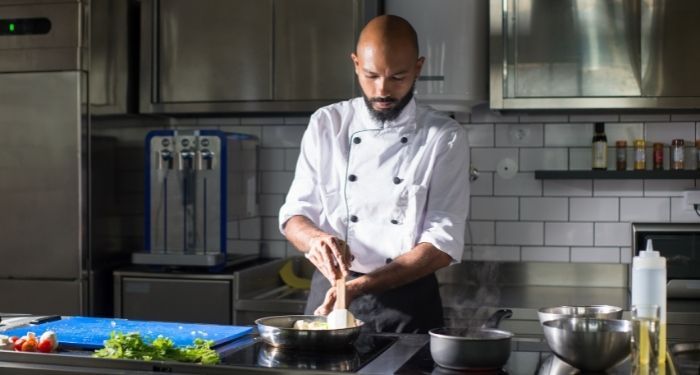This content contains affiliate links. When you buy through these links, we may earn an affiliate commission.
As the wife of an amazing chef, and as a person who loves reading and recommending books, people often assume that I’m great at picking out cookbooks for my husband. In 2022 this is true, but it took years of understanding what he’s looking for to really get it.
I used to Google “cookbooks for chefs” or “gifts for chefs,” only to find the same results of cookbooks and gifts that would be recommended to a home cook. This is not what I was looking for.
Cheffing as a profession comes with advanced tools just like most professions do. If your cousin were a pro golfer, would you gift her a 4 iron from your local sports shop? No. Just like I wouldn’t recommend buying a knife from Target for your professional chef friends or relatives. My husband is very particular and excited about the knives he uses; believe me, if he’s got room in his knife roll for a new one, he’s been dreaming and scheming about it for months.
The same is true of cookbooks. He’s looking for books that are more than just a list of recipes. So today I will begin by outlining some of the things he’s looking for in cookbooks and will then provide a list of some of his favorites.
What chefs look for in cookbooks
Chefs look for many of the same things in cookbooks that I look for in fiction. They want:
- A specific point of view. He’s not interested in generalist cookbooks. He likes cookbooks that focus on one type of cuisine, sure, but he also likes cookbooks that prioritize regional food, growing seasons, specific techniques, and traditions.
- Own voices. If he’s reading a Palestinian cookbook, he’d much prefer it was written by a Palestinian.
- High-quality pictures. Everyone wants great pictures in their cookbooks, but if you check out some of the incredible food design and photographs in chef cookbooks, you’ll quickly see that these are a cut above.
- Larders. A fancy way of saying a “cupboard,” larder cookbooks focus on what ingredients you should have on hand to create a certain type of cuisine or to complete specific types of dishes.
- James Beard Award winners. This is the main award for cookbooks and my husband agrees that most of the past winners are worthy of giving to your chef friends and fam.
- Cookbooks from restaurants. When choosing a cookbook from a restaurant, he wants more than just their recipes. He wants to understand why they’re doing what they’re doing and what they’ve tried before. He’s also interested in behind-the-scenes stories from restaurants and the daily minutiae. Note that this does not mean he’s interested in gossip. The restaurant he works for has a fantastic code of ethics that they don’t just write down — they bring those ethics into work every day and take significant strides to ensure they are being met. Many chefs are working to change restaurant culture for the better and cookbooks that dive into how individual restaurants are dealing with this are of particular interest.
- Cookbooks from non-restaurants. All of the above might make you think that he’s only interested in cookbooks from people who’ve successfully run restaurants. This is not the case. He’s interested in authenticity and it’s no secret that many of the best cooks are not chefs. When he buys a cookbook not associated with a restaurant, he still holds it to high standards and wants well-thought-out, detailed recipes and instructions with inspiring photos.
That’s a long list and none of the books I’m going to include below will meet all of them. But hopefully, it gives you a bit of insight into one chef’s opinions on how to find a great cookbook for a chef.
I’ve also done a little cheating in the past and gifted him with a subscription to The Hardcover Cook. They send out a quarterly box in several categories, including Essentials, which is set up for cooks, but they also offer more advanced boxes, such as the Omnivore Box I’ve gotten him. What’s cool about these boxes, other than the fact that the cookbooks are chef-level, is that they come with a few hard-to-find ingredients to help make some of the recipes. And to build up that larder!
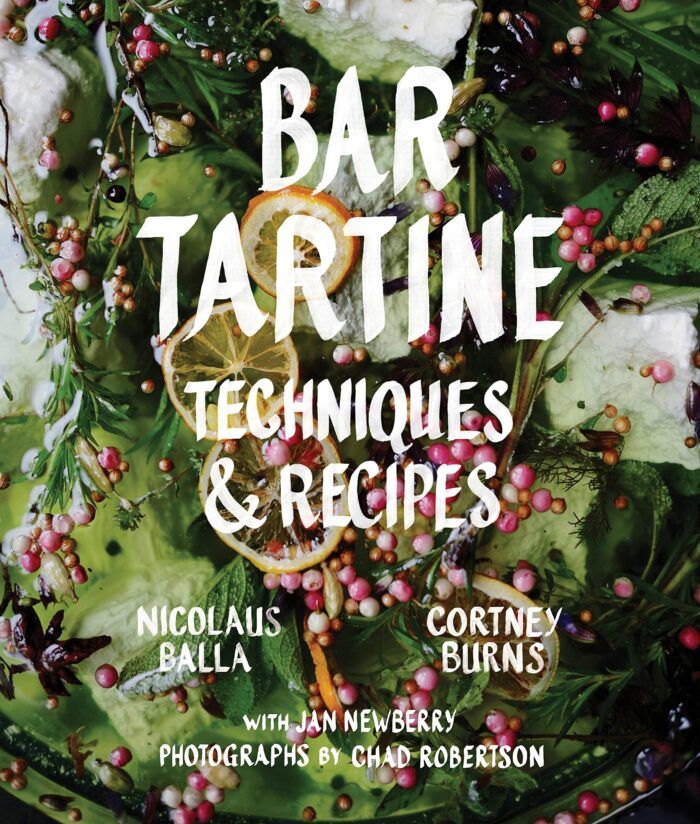
Bar Tartine: Techniques & Recipes Cortney Burns and Nicolaus Balla
Speaking of larders, this is a great book to build one. This is actually the book that my husband almost always gifts his sous chefs during gift-giving times. As the title suggests, it covers not just recipes but techniques. It offers tips on termination and what to have on hand to whip up literally thousands of dishes.
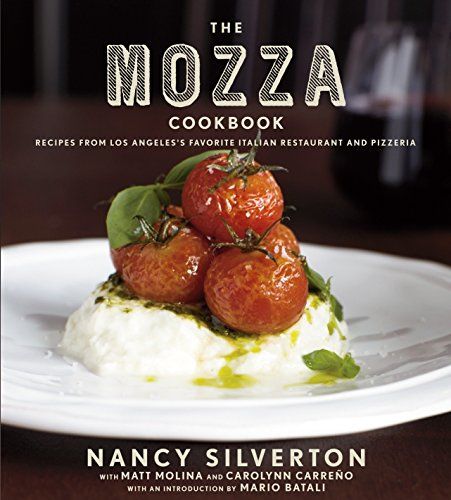
The Mozza Cookbook: Recipes from Los Angeles’s Favorite Italian Restaurant and Pizzeria by Nancy Silverton
If you want to gift a chef a book of amazing Italian recipes and techniques, this is your go-to. From pizza to pasta, from quick recipes to incredibly involved, there are layers and layers of flavors and textures in this beautifully rendered book.
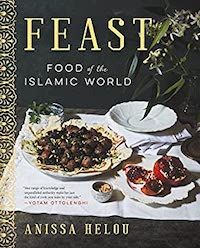
Feast: Food of the Islamic World by Anissa Helou
Winner of the James Beard Foundation International Cookbook Award, Feast offers varied, timeless recipes and techniques from North Africa, the Mediterranean, and the Middle East. I’ve worked with this cookbook and the amount of knowledge, experience, and passion Helou shares with the reader is extraordinary. From some of the more well-known dishes such as biryani and kebabs to many dishes most readers have not had the pleasure of experiencing, there is no dearth of inspiration here.
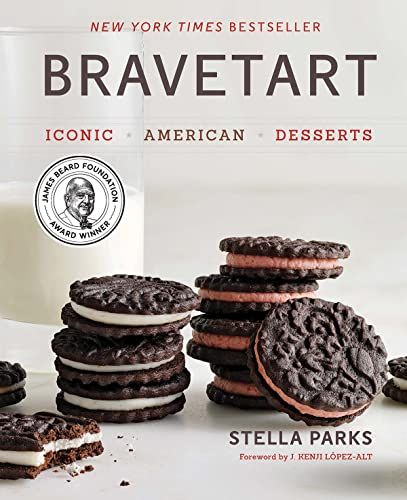
BraveTart: Iconic American Desserts by Stella Parks
Okay pun lovers, you should be happy with this title! Winner of the 2018 James Beard Foundation Book Award for Baking and Desserts, BraveTart covers iconic desserts that will be very familiar to most Americans. What makes it special is the fact that she’s tested every recipe in this book hundreds of times to find the perfect temperatures, ingredients, techniques, and beyond. These recipes also include over 200 variations so chefs can create their own specialties built from her groundwork.
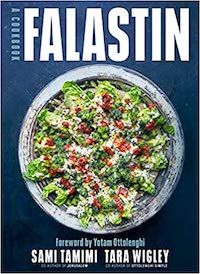
Falastin: A Cookbook by Sami Tamimi and Tara Wigley
In Falastin, named after a Palestinian newspaper, Sami Tamimi retraces the history and evolution of his country’s food. He and his writing partner, Tara Wigley, talk to refugee camps, work in home kitchens in Gaza, and learn about the culinary traditions of a people from the territory between the Mediterranean Sea and the Jordan River. With dozens and dozens of recipes and even more incredible photographs, this is a unique glimpse into the food of the Palestinian people.
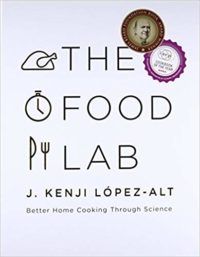
The Food Lab: Better Home Cooking Through Science J. Kenji López-Alt
Winner of the 2015 James Beard Award for General Cooking and the IACP Cookbook of the Year Award, The Food Lab is the essential textbook for Ph.D. level cooking. This book’s focus is on the science behind how ingredients merge with heat and energy to create the food you eat. In some cases, Kenji has found that the best techniques are simpler than the complex techniques many people assume are the best. There are hundreds of recipes and over 1,000 images in this truly expansive book.
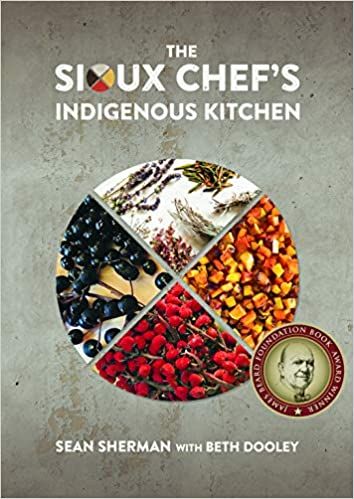
The Sioux Chef’s Indigenous Kitchen by Sean Sherman
Winner of 2018 James Beard Award Winner: Best American Cookbook, I forgive the punny title because this book is something special. If your chef wants to learn the history of Native American foods and how to use indigenous fruits and vegetables (both wild and foraged) in simple yet creative ways, this is a winner. The original clean chefs who focused on nose-to-tail cooking, indigenous cooks have a lot to teach today’s modern chefs.
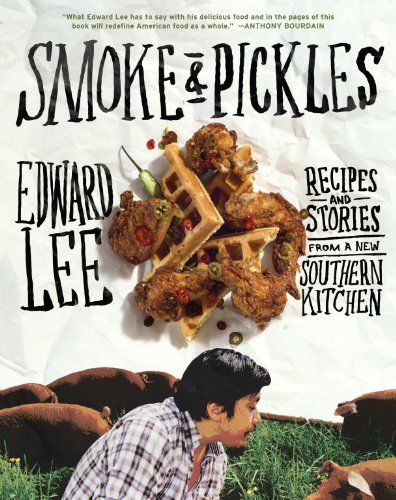
Smoke & Pickles: Recipes and Stories from a New Southern Kitchen by Edward Lee
Edward Lee was born and raised in Brooklyn by Korean immigrants, but it was in Louisville, Kentucky that he got his chef chops. The restauranteur and host of The Mind of a Chef, Lee create this cookbook that covers Korean, Southern, and Koren/Southern foods to bring a new way to look at foods from two of the most delicious cuisines in the world.
I don’t know about you, but this list sure made me want to go tell my husband to make me dinner! If you’d rather, you can check out some of the most anticipated cookbooks of 2022 or learn Why We (Still) Need Cookbooks in the first place.
























































![Key Metrics for Social Media Marketing [Infographic] Key Metrics for Social Media Marketing [Infographic]](https://www.socialmediatoday.com/imgproxy/nP1lliSbrTbUmhFV6RdAz9qJZFvsstq3IG6orLUMMls/g:ce/rs:fit:770:435/bG9jYWw6Ly8vZGl2ZWltYWdlL3NvY2lhbF9tZWRpYV9yb2lfaW5vZ3JhcGhpYzIucG5n.webp)


